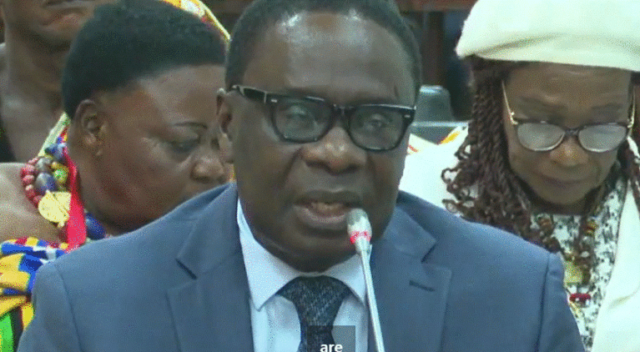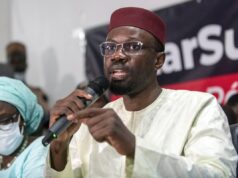Deputy Minister-designate for Foreign Affairs and Regional Integration, James Gyakye Quayson, has reiterated his opposition to LGBTQ+ rights in Ghana, stating unequivocally that he would not support any initiative aimed at promoting or legalising such practices.
Appearing before Parliament’s Appointments Committee on Friday, July 25, the Assin North MP declared that his stance is rooted in deeply held cultural and personal convictions shaped over decades, including his time living abroad.
“As a true African, I’m not in support of LGBTQ,” Quayson said. “I was in Canada when LGBTQ was liberalised, but I was one of the people who campaigned against it. So I will never be in support of it.”
Mr. Quayson, who spent 42 years in Canada before returning to Ghana to enter politics, added that his views align with the beliefs of many Ghanaians and reflect traditional African values, which he says do not condone same-sex relationships.
His comments come amid growing national discourse on LGBTQ+ rights and legislation, particularly around the controversial Proper Human Sexual Rights and Ghanaian Family Values Bill, commonly referred to as the anti-LGBTQ bill.
First introduced in 2021, the bill seeks to not only criminalise same-sex relations—already prohibited under existing laws—but also ban the advocacy, funding, and promotion of LGBTQ+ activities.
The bill proposes prison sentences for individuals who identify as LGBTQ+ or engage in same-sex acts, and even stiffer penalties for those who advocate or promote LGBTQ+ rights. It also outlaws public displays of same-sex affection and prohibits the formation or operation of LGBTQ+ organisations.
While the bill enjoys widespread support from the Ghanaian public, religious groups, and traditional leaders, it has been sharply criticised by international human rights organisations and foreign governments, who argue that it infringes on basic human rights including freedom of expression, association, and identity.








